#jane austen confession
Text
#pride and prejudice#jane austen#mr darcy#fitzwilliam darcy#prideandprejudice#elizabeth bennet#mr. darcy#p&p#janeite#austen adaptations#jane austen confession#jane austen books#death comes to pemberley
385 notes
·
View notes
Text
Hugh Dancy icons
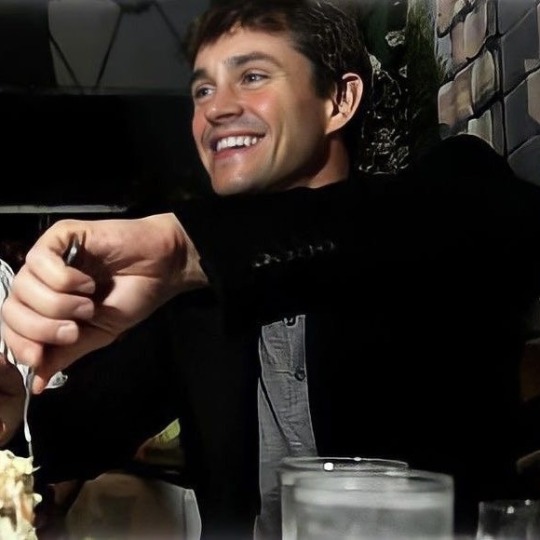






ft. some halloween icons



#hugh dancy#icons#hugh icons#hugh dancy icons#hugh dancy icon#hannibal layouts#hannibal nbc#nbc hannibal#confessions of a shopaholic#jane austen book club#will graham headers#will graham icons#will graham#teacher will graham#will graham x hannibal lecter#will graham/hannibal lecter#will graham icon#hannibal#hannibal icons#hugh#twitter icons#murder husbands#murder family
163 notes
·
View notes
Text
‘[…] had I really loved, could I have sacrificed my feelings to vanity, to avarice? — or, what is more, could I have sacrificed hers? — But I have done it. To avoid a comparative poverty, which her affection and society would have deprived of all its horrors, I have, by raising myself to affluence, lost every thing that could make it a blessing.’ Sense and Sensibility, Chapter 9, Vol. III.
I can’t believe Jane Austen predicted snowbaird 210 years ago!!
‘[…] she loved him. She’d said so last night in the song. Even more, she trusted him. Although, if he ditched her in the woods to claw out an existence alone, no doubt she would consider that a breach of faith. He had to think of just the right way to break the news. But what would that be? “I love you deeply, but I love officers’ school more?” That wasn’t going to go over well. And he did love her! He did! It was just that, only a few hours into his new life in the wilderness, he knew he hated it.’ The Ballad of Songbirds and Snakes, Chapter 30
#yes ofc this is from willoughby’s confession#he really loved marianne and vice versa#but his sense of self preservation won in the end#he chose the cowardly way out and will spend the rest of his life suffering for it#snowbaird#the ballad of songbirds and snakes#tbosas#jane austen#sense and sensibility#thg#the hunger games#coriolanus x lucy gray#coriolanus snow#lucy gray baird#rereading sense and sensibility for the first time in a decade has been an experienceTM#i feel much more pity towards willoughly than i ever did at 15#i also immediately saw the snowbaird parallels bc ofc
84 notes
·
View notes
Text
So many people judge Elinor Dashwood for accepting Willoughby's "apology" (it's really just a sob story where he throws every female in his life under the bus), but she doesn't really forgive him AND she is in a very delicate emotional state and dead tired when it happens. For a full defense, I've taken the quotes that show what Elinor is thinking during Chapter 44-46 of Sense & Sensibility. (This is really long)
He arrives right after Elinor is finally assured that Marianne is going to live, after some very trying moments where Mrs. Jennings was predicting that her sister would die. She is waiting for her mother to arrive, and then he walks in. Her emotional state is intense:
Never in her life had Elinor found it so difficult to be calm, as at that moment. The knowledge of what her mother must be feeling as the carriage stopt at the door—of her doubt—her dread—perhaps her despair!—and of what she had to tell!—with such knowledge it was impossible to be calm.
She is not happy to see him, she only barely agrees to hear him out, she is mostly pissed, "Miss Dashwood, at this point, turning her eyes on him with the most angry contempt" And this is Elinor! Who usually controls her expression of feelings.
Elinor remains pretty annoyed with him throughout:
“I have,” returned Elinor, colouring likewise, and hardening her heart anew against any compassion for him, “I have heard it all. And how you will explain away any part of your guilt in that dreadful business, I confess is beyond my comprehension.”
But as Willoughby goes on, Elinor wavers:
Elinor’s heart, which had undergone many changes in the course of this extraordinary conversation, was now softened again
“You are very wrong, Mr. Willoughby, very blamable,” said Elinor, while her voice, in spite of herself, betrayed her compassionate emotion
She does agree that his explanation at least makes him a slightly better person, but her language is hedged, a lot:
“Yes, you have certainly removed something—a little. You have proved yourself, on the whole, less faulty than I had believed you. You have proved your heart less wicked, much less wicked. But I hardly know—the misery that you have inflicted—I hardly know what could have made it worse.”
And even when she is admitting this, she's going over in her head what could have made him such a terrible person:
Elinor made no answer. Her thoughts were silently fixed on the irreparable injury which too early an independence and its consequent habits of idleness, dissipation, and luxury, had made in the mind, the character, the happiness, of a man who, to every advantage of person and talents, united a disposition naturally open and honest, and a feeling, affectionate temper. The world had made him extravagant and vain—Extravagance and vanity had made him cold-hearted and selfish. Vanity, while seeking its own guilty triumph at the expense of another, had involved him in a real attachment, which extravagance, or at least its offspring, necessity, had required to be sacrificed. Each faulty propensity in leading him to evil, had led him likewise to punishment. The attachment, from which against honour, against feeling, against every better interest he had outwardly torn himself, now, when no longer allowable, governed every thought; and the connection, for the sake of which he had, with little scruple, left her sister to misery, was likely to prove a source of unhappiness to himself of a far more incurable nature.
Now we have the ending:
He held out his hand. She could not refuse to give him hers;—he pressed it with affection.
“And you do think something better of me than you did?” said he, letting it fall, and leaning against the mantel-piece as if forgetting he was to go.
Elinor assured him that she did;—that she forgave, pitied, wished him well—was even interested in his happiness—and added some gentle counsel as to the behaviour most likely to promote it.
So she ends the conversation/whine fest with a lecture on how Willoughby could improve himself! This may be a great example of Christian forgiveness, but she certainly doesn't think he is a good person.
Now Elinor is alone and she reflects on how his charm overcomes her knowledge of his faults:
Willoughby, he, whom only half an hour ago she had abhorred as the most worthless of men, Willoughby, in spite of all his faults, excited a degree of commiseration for the sufferings produced by them, which made her think of him as now separated for ever from her family, with a tenderness, a regret, rather in proportion, as she soon acknowledged within herself—to his wishes than to his merits. She felt that his influence over her mind was heightened by circumstances which ought not in reason to have weight; by that person of uncommon attraction, that open, affectionate, and lively manner which it was no merit to possess; and by that still ardent love for Marianne, which it was not even innocent to indulge. But she felt that it was so, long, long before she could feel his influence less.
and slightly later:
But the rest, which one night entirely sleepless, and many hours of the most wearing anxiety seemed to make requisite, was kept off by irritation of spirits. Willoughby, “poor Willoughby,” as she now allowed herself to call him, was constantly in her thoughts; she would not but have heard his vindication for the world, and now blamed, now acquitted herself for having judged him so harshly before. But her promise of relating it to her sister was invariably painful. She dreaded the performance of it, dreaded what its effect on Marianne might be; doubted whether after such an explanation she could ever be happy with another; and for a moment wished Willoughby a widower. Then, remembering Colonel Brandon, reproved herself, felt that to his sufferings and his constancy far more than to his rival’s, the reward of her sister was due, and wished any thing rather than Mrs. Willoughby’s death.
I think wishing Willoughby a widower is the most damning line here, but the sentence prior make it clear that it is for Marianne's sake, not Willoughby's, that Elinor wishes he was free to marry. And she repents almost immediately. Also, and importantly, Elinor is still not sleeping! So she is still running on anxiety and no sleep when she wishes Mrs. Willoughby dead.
Later, when she does tell Marianne about the encounter a few weeks later, we can see her opinion of Willoughby has definitely soured:
“The whole of his behaviour,” replied Elinor, “from the beginning to the end of the affair, has been grounded on selfishness. It was selfishness which first made him sport with your affections; which afterwards, when his own were engaged, made him delay the confession of it, and which finally carried him from Barton. His own enjoyment, or his own ease, was, in every particular, his ruling principle.”
To summarize: Elinor was tired and emotional when Willoughby arrived and under the influence of his charm, she did begin to think better of him. She did forgive him, but while still dwelling on his faults. When she has time for rest and reflection, and without him present, she thinks more clearly and knows that everything Willoughby did was selfish.
#sense and sensibility#elinor dashwood#john willoughby#willoughby#the confession chapter#jane austen#elinor was tired#Willoughby is very charming#but she never lost sight of his crimes
112 notes
·
View notes
Text



Boycotting streaming services or not watching movies/series at all is NOT a part of the strike, so here are a few suggestions on what to watch after Bridgerton and Queen Charlotte. Celebrate the amazing work actors, screenwriters and everyone in the film industry do for us! ✨
Always happy to hear more recommendations! 🌸
#bridgerton#bridgerton netflix#queen charlotte#what to watch#sanditon#the gilded age#vanity fair#the confessions of frannie langton#victoria#jane austen#far from the madding crowd#mary shelley#little women#belle 2013#perioddramasonly#historical#1800s#tv shows#movies
114 notes
·
View notes
Text
i still can’t get over how emma (1815) coded crowley’s confession was??? “I would like to spend —-”??? like just say if you loved him less you might be able to talk about it more!!!
#good omens spoilers#good omens 2#crowley is really just an updated mr knightley#pines after his good-hearted but easily misguided best friend#tells them the truths they need to hear except for how he's desperately in love#until they're both wrapped up in miscommunication#and then he stumbles over a confession because he's nervous and in love and desperate not to lose the love of his life#he cannot make speeches 🥺#the jane austen of this season istg
97 notes
·
View notes
Text
please for the love of god we need to talk about all the movies hugh dancy is in
1. david copperfield (normal)
2. royal twink from my childhood
3. that one horror movie where he had his ass out
4. school teacher during the rwandan genocide
5. grigg
6. love interest for a shopaholic
7. british missionary that gets pegged
8. hot guy who fucks a mom and her kid and leaves within 30 minutes
9. makes vibrator in victorian england
10. the voice of albert in the abominable snow baby
#hes so insane#a wacky character you could say#hate him hate him so much#westley speaks#hugh dancy#will graham#nbc hannibal#the sleeping dictionary#the jane austen book club#ella enchanted#david copperfield#shooting dogs#confessions of a shopaholic#savage grace#hysteria#the abominable snowbaby#jesus should i tag all his character#prince charmant#luke brandon#john truscott#tempo#grigg harris#sam green#dr. mortimer granville
392 notes
·
View notes
Text
I love him.
It is like Jane Austen said after all, you pierce my soul. I am half agony, half hope.
And it is like Mahmoud Darwaish said after all: You're killing me and you are keeping me from dying. That is love.
#a confession#artists on tumblr#thoughts#words#writers and poets#writers on tumblr#writerscommunity#writing#prose#ponderings#journal#l love you#jane austen#it is like jane austen said after all you pierce my soul#i am half agony half hope#mahmoud darwish#jane austin quote#text post#home#welcome home
30 notes
·
View notes
Text
Currently thinking about how my favourite author (Neil Gaiman) inserted plots and references about my other favourite author (Jane Austen) throughout my ineffably favourite series (Good Omens) for its second act and ended it with something that mirrors what every Austenian third act needs; the characters fixing themselves in order to arrive at the sweet and satisfactory final act. I love you MOST ardently, and if I loved this any less, I might be able to talk about it more.
#good omens#good omens 2#neil gaiman#jane austen reference#ineffable husbands#aziracrow#aziraphale#crowley#and aziraphales favourite austen book is Persuasion hes JUST like me#forever thinking about my beloved characters#favourite characters#goodomens2#and there was a BALL scene thats insane like#plus a failed love confession crowley is SO Frederick Wentworth#aziraphale as anne elliot#david tennant#michael sheen
27 notes
·
View notes
Text
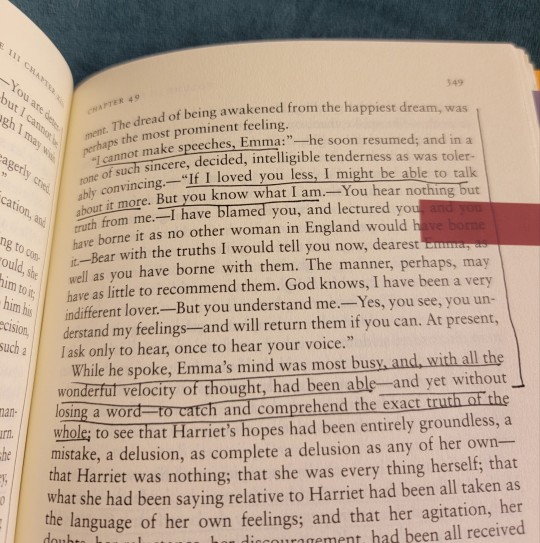
"'I cannot make speeches, Emma' ... 'If I loved you less, I might be able to talk about it more.'"
"While he spoke, Emma's mind was most busy, and, with all the wonderful velocity of thought"
Emma, Jane Austen
#jane austen#austen#emma#jane austen emma#books#quotes#book quotes#annotating books#annotations#love#love quotes#confession#proposal#romance#relationship
12 notes
·
View notes
Text

Colin or Matthew ? 😀
#pride and prejudice#jane austen#mr darcy#fitzwilliam darcy#prideandprejudice#elizabeth bennet#mr. darcy#p&p#janeite#prideandprejudice2005#pride & prejudice#pride and prejudice 1995#matthew macfadyen#colin firth#jane austen characters#jane austen books#jane austen confession
272 notes
·
View notes
Text
Coleen Hoover is how it starts for everybody, don't tell me otherwise.
#dark academia#literature#dark acadamia aesthetic#dorian gray#jane austen#darcy#light academia#art journal#dark academia aesthetic#aesthetic poetry#coleen#coleen hoover#academic#dead poets society#it ends with us#it starts with us#lily bloom#ryle kincaid#ugly love#confess#verity#books and coffee#books#bookshop
79 notes
·
View notes
Text
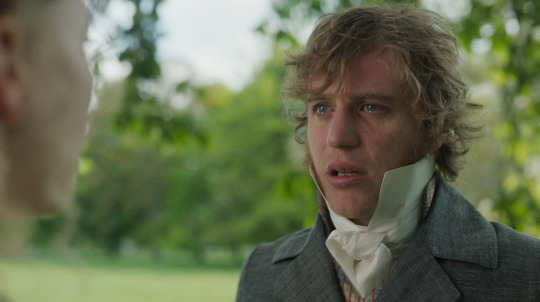
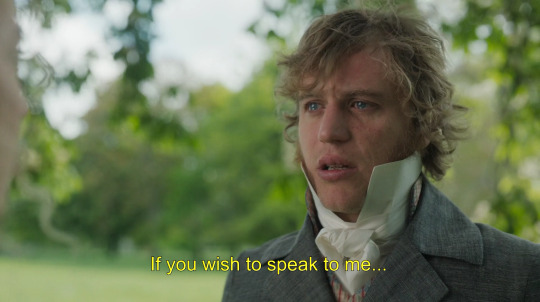

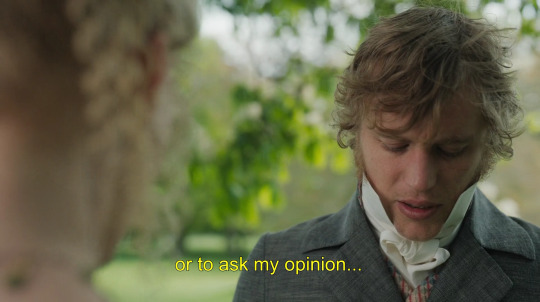
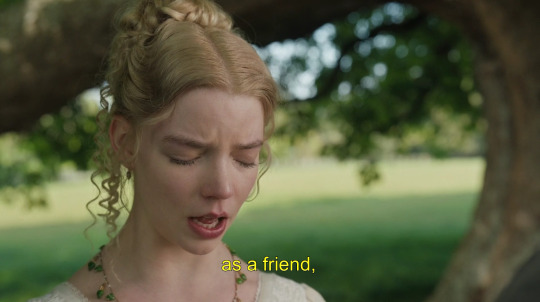
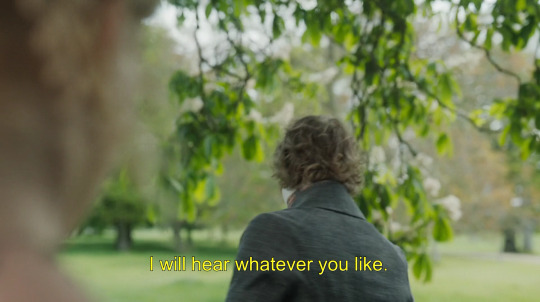

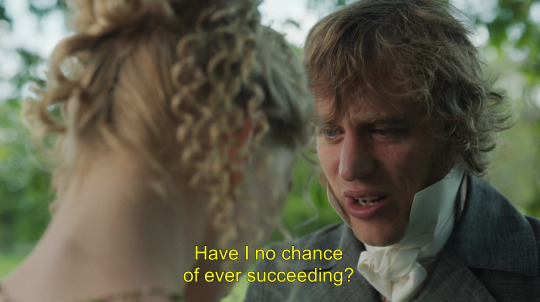

Emma., 2020
#comedy#drama#romance#emma#emma.#autumn de wilde#eleanor catton#jane austen#anya taylor-joy#johnny flynn#confession
13 notes
·
View notes
Text
so cruel to be stricken with blorbotions for a character in a mediocre source material. i love u ma'am but ur covered in bad writing grime!! idk if there's anything i can do for u....
#this is about honoria from the buccaneers and i'm in pain#i just need someone to tell me why this show parses like it's fully missing episodes' worth of plot and character development.#why do characters constantly reference events that never happened on screen#why do they think they've earned their jane austen angsty confessions when we haven't done enough building on any relationships here#honoria and mabel are quietly having the x500 speedrun of every lesbian period piece's plot without any of the emotional logic#like the writers really think they can have characters have fights and storm off and then.... without doing any scenes that show developmen#..... jump right to a ' i'm so sorry for the things i said. i've totally changed my perspective and gotten over this conflict. offscreen <3#guys.... guys u need to show characters interacting with conflict and mind-changing stimuli they cannot just whiplash between vibes#with absolutely no apparent motivation other than 'this is what has to happen next for the plot'#killing me over here. honoria sweetie i'm so sorry that an ugly ass writer's room like this would even say that oh my god#i don't even read edith wharton's works but i KNOW she has to deserve better than this adaptation is doing to her writing#||x sheer calculated silliness [ ooc ]
2 notes
·
View notes
Text
“Images of the way they were together were stamp’d on his brain like silver nitrate blooming against chalk tablets. Etched in shadow, frozen in aching memory.”
Confessions of the Fox
#books#literature#dark academia#academia#poetry#classics#light academia#reading#dark academia aesthetic#jane austen#oscar wilde#jack sheppard#18th century literature#the beggars opera#john gay#confessions of the fox#bookish#bookstagram#booktok#paperback#reader
38 notes
·
View notes
Text
Sure, “if I loved you less I might be able to talk about it more” this
and “you’ve bewitched me body and soul” that,
but is there a man who’s willing to be my vacuum cleaner, Ford cortina, AND coffee pot?
9 notes
·
View notes